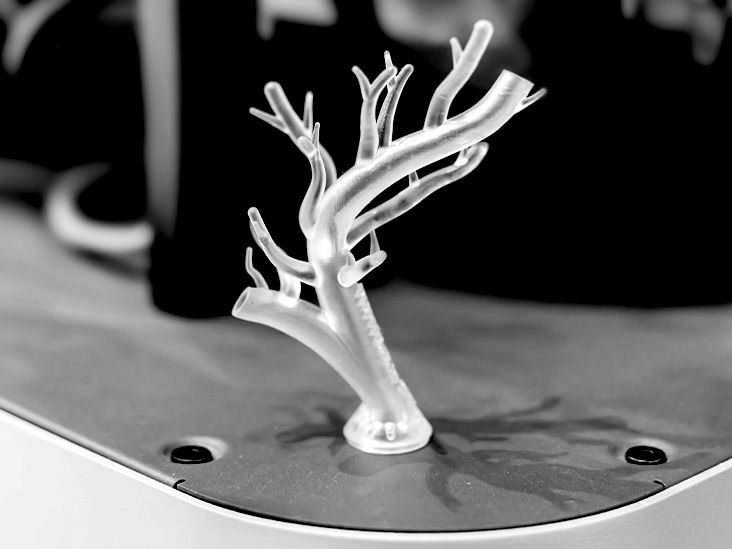Scientists Develop Hybrid Biomaterial to Combat Heart Aging
In the dim glow of a laboratory at the National University of Singapore, researchers huddled around a table strewn with samples of rat heart tissue and innovative gels. The atmosphere was electrifying, charged with the potential to change the course of cardiac science. What lay at the heart of their research? A groundbreaking exploration of the extracellular matrix (ECM)—a lesser-known yet crucial component of cellular biology that could hold the secrets to slowing down or even reversing the aging of the heart.
The Aging Heart: A Complicated Puzzle
As we age, the heart, once a vigorous powerhouse, begins to lose its robust efficiency. According to a study published in Nature Materials, age-related changes in the ECM appear to play a significant role in this decline. “It is widely acknowledged that the mechanics, organization, and composition of the ECM vary with age,” explains Dr. Jennifer Young, the senior author of the study. “This variance can lead to the stiffening of the cardiac muscle, which dramatically affects heart function.”
With age, cardiac fibroblasts become activated, unleashing fibrosis—an uncontrollable buildup of connective tissue reminiscent of scarring. While fibrosis is essential for repairing damaged tissue, unchecked, it makes the heart stiffer and less efficient in pumping blood. The implications are alarming: a nuanced understanding of the ECM could unlock new possibilities in heart health.
Revolutionary Research Methodology
To peel back the layers of this enigma, the research team devised an innovative model dubbed the DECellularized In Situ Polyacrylamide Hydrogel-ECM hybrid (DECIPHER). “Unlike previous systems, DECIPHER allows us to manipulate both stiffness and biochemical signaling independently,” says Avery Rui Sun, the study’s first author. “This distinction is crucial because it uncovers how these two factors interact in heart aging.”
The ability to replicate young cell signaling in an aged, stiff ECM unveiled promising findings. The researchers discovered that biochemical signals typical of younger tissue could overshadow the negative impacts of a stiff ECM. “This research emphasizes that the environment surrounding cardiac cells matters more than previously thought,” Young articulates. “Targeting that environment could be key to slowing heart aging.”
A New Frontier in Cardiac Health
Dr. Nishant Kalra, an interventional cardiologist who was not involved in the study, underlines the study’s importance. “Young heart tissue has surface molecules that can prevent the activation of fibrosis-promoting cells, even in tissue that mimics aged heart structures. This insight opens new avenues for therapeutic strategies aimed at heart aging,” he remarks.
It’s critical to approach such promising results with caution. “While this research provides a new platform for identifying potential treatments, human studies are the next logical step,” Kalra adds. The rat models indicate a path, but the translation to human application will require rigorous validation.
Lifestyle Interventions to Support Heart Health
While science begins to explore these revolutionary pathways, everyday choices can significantly impact heart health. Medical experts recommend several evidence-based strategies that may aid in mitigating age-related decline:
- Regular aerobic exercise: Aim for at least 150 minutes of moderate-intensity or 75 minutes of vigorous-intensity aerobic activity per week.
- Healthy diet: Emphasize fruits, vegetables, whole grains, and lean proteins, while limiting saturated fats, cholesterol, and sodium.
- Quit smoking: Tobacco damages blood vessels and heightens the risk of heart disease.
- Quality sleep: Ensure 7–9 hours of uninterrupted sleep each night; sleep deprivation can severely affect heart health.
- Weight management: Maintain a healthy weight to reduce the risk of heart disease.
- Stress management: Engage in activities like exercise, meditation, or spending time in nature for effective stress relief.
“These factors are consistently linked to reduced biological and cardiovascular aging,” Dr. Kalra states, emphasizing their importance as they contribute to overall heart health.
A Holistic Approach to Heart Aging
Meanwhile, Dr. Daniel Atkinson, a family physician based in the UK, points to the need for moderation in alcohol consumption. “Keep it below 14 units per week and avoid binge drinking. A consistent break from alcohol is also advisable, as excess consumption can weaken heart muscles and elevate blood pressure,” he warns.
The implications of these lifestyle interventions are profound. Each action taken towards a healthier lifestyle today may help in mitigating the wear on the heart as one ages, serving as a form of preemptive care in light of new scientific findings.
As the researchers’ work continues, humanity may be on the brink of redefining aging itself—a possibility that could turn the tide in heart health and longevity. With these exciting developments in understanding the ECM, it remains clear that both innovative scientific inquiry and conscious life choices are pivotal in the quest to enhance the quality of life as we age.
Source: www.medicalnewstoday.com


